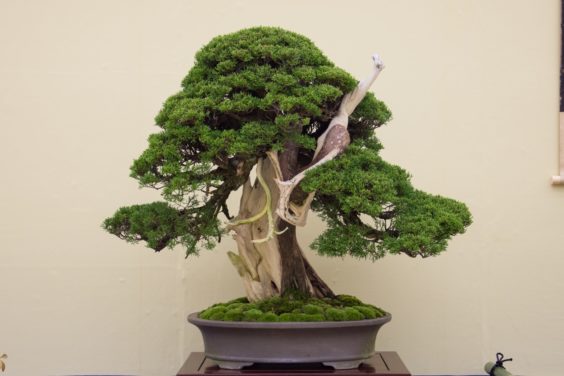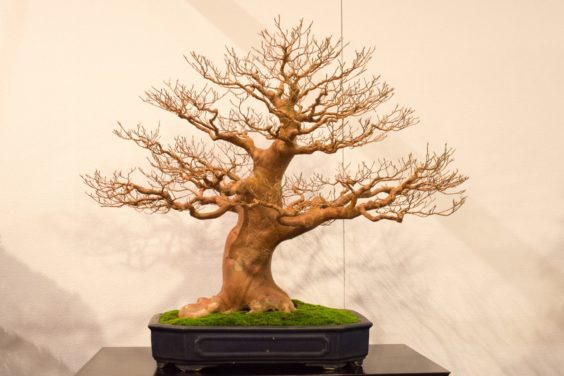So – my trees are pest free, properly watered, and well situated in my garden. I can tell the difference between merely healthy and vigorously growing bonsai. My trees are secure in their containers and I’ve started practicing wiring. I take a tree off the bench, sit down, and ask myself, what do I do next?
Do I need to cut back this branch or let it grow? Am I feeding enough – or too much – for this time of year? Does the tree look better from this angle or that angle? Does the pot suit the tree well?
I could go on. There are limitless questions we can ask about our trees. Some of the answers are easy to come by, others require more work.
To round out this guide aimed at beginning bonsai enthusiasts, I’d like to offer some tips for addressing the questions that prove tricky to answer.
Finding a go-to resource when you need to learn more
It’s relatively easy to find answers to bonsai questions from online resources, friends, local bonsai clubs, nurseries and bonsai professionals. The big question, however, is how much trust we can place in a resource when we lack the necessary experience to evaluate the quality of the information.
Several approaches are useful here. The first is finding a good teacher.
Like it is in any endeavor, finding a good teacher is not always easy. I am extremely fortunate that my teacher, Boon Manakitivipart, turned out to be a great one for me.
Boon on a visit to the White Mountains in 2009
At the time we met, I had no way of evaluating Boon’s understanding of bonsai. What was clear was that he knew a lot more than I did, and that was enough.
For those still looking for a great teacher, here are two tips for selecting one.
- If possible, select a teacher that lives in your area or has worked with clients that live in a climate similar to yours. Understanding how trees behave given your local conditions can make a big difference.
- Look for a teacher whose trees are healthy and beautiful. This should be obvious, but it’s not always easy to get a sense of a teacher’s work depending on the interaction (online, club program, convention workshop, etc.).
When it comes to getting information from friends, clubs, nurseries or online resources, the same two tips apply. The more you know about one’s trees and their understanding of your climate, the better.
Likewise, books. Find books with photos of trees that are full, healthy and beautiful.
Shimpaku displayed at the 2015 Taikan-ten
Once you’ve found a teacher and or a club, friend, website or nursery that can help, you have it made. Bonsai can be as fun as it is challenging, and as frustrating as it is rewarding. And with help from the right people, even the challenges and frustrations merit the effort.
Stewartia displayed at the 2016 Kokuru-ten
Thanks for making it through to the end of the series. For a more detailed introduction to bonsai, check out my book on the topic, The Little Book of Bonsai.
Subscribe to Bonsai Tonight
New Posts Delivered Every Tuesday and Friday



Candace says
Jonas, This series has been so clear, concise and informative. It is a pleasure to read, even if I didn’t care about the topic. What a wonderful resource this website and blog are! Although I have been involved in bonsai since 2001 I never fail to learn something from every post. It feels like I am relearning most of what I was taught 10 years ago and discarding lots of bad habits. I don’t know how you do it so consistently well, but please keep it up. I know so many people who are benefiting from your generosity and insights.
Jonas Dupuich says
Thanks so much Candace – I’m glad you’re finding it helpful!
Barry McDonnell says
Jonas, these were an excellent series of posts for beginner bonsai enthusiasts. I was asked to give a lecture on bonsai for beginners at my local garden center. Your posts have helped me to mentally organize the topics I planned to cover for it and a subsequent lecture in the spring I hope to give on repotting (I live in SE PA ) Thanks again.
Mark Comstoc says
The teacher is only good if they can clearly relay the messages from their teacher to their students. At this you are great!
Charlie Mosse says
I hope you continue with this type of education. You certainly are good at it; clear, meaningful and well thought out. Thanks